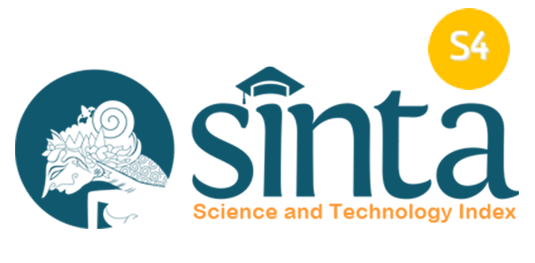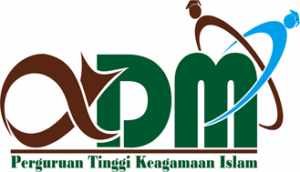Utilizing microsoft excel spreadsheet technology to improve senior secondary school students’ achievement and retention in quadratic function in Nigeria education
Abstract
Keywords
Full Text:
PDFReferences
Aderonke, A. B. (2014). Impact of technology interventions on student achievement in rural Nigerian schools (Doctoral dissertation, Walden University). Retrieved from http://scholarworks.waldenu.edu/dissertations
Akanmu, M. A., & Fajemidagba, M. O. (2013). Guided discovery learning technology and senior school students’ performance in mathematics in Ejigbo, Nigeria. Journal of Education and Practice. A publication of the International Institutes for Science, technology and Education, 4(12), 82-89.
Anyagh, P. I., & O’kwu, E. I. (2010). Effect of formula teaching approach on students’ achievement in algebra. Journal of Research in Curriculum and Teaching, 5(1), 374-379.
Anyor, J. W. and Iji, C. O. (2014). Effect of integrated curriculum delivery technology on secondary school students’ achievement and retention in algebra in Benue State, Nigeria. Abacus: The Journal of the Mathematical Association of Nigeria, 39(1), 83-96.
Ayuba, I. (2017). Effects of computer based-instruction on retention and performance in algebraic word problems among junior secondary school students in Kaduna State, Nigeria (Master dissertation, Ahmadu Bello University Zaria, Nigeria). Retrieved from http://kubanni.abu.edu.ng/jspui/bitstream/123456789/
Cheung, S. K., & Kwan, J. L. Y. (2021). Parents’ perceived goals for early mathematics learning and their relations with children's motivation to learn mathematics. Early Childhood Research Quarterly, 56, 90-102. https://doi.org/10.1016/j.ecresq.2021.03.003
Eze, J. E. (2011). A practical teaching and learning of Mathematics in normadic schools. Abacus: The Journal of the Mathematical Association of Nigeria, 36(1), 129-138.
Farayola, P. I. (2014). Teaching of mathematics at tertiary level through effective use of information and communication technology and mathematics laboratory. Abacus: The Journal of the Mathematical Association of Nigeria, 39(1), 247-254.
Hu, Q., Son, J. W., & Hodge, L. (2022). Algebra teachers’ interpretation and responses to student errors in solving quadratic equations. International Journal of Science And Mathematics Education, 20(3), 637-657.
Iji, C. O., Abakpa, B. O., & Takor, D. I. (2015). Utilizing mathematical manipulatives to improve upper basic one students’ achievement in algebra in Kwande L.G.A, Benue State. Abacus: The Journal of the Mathematical Association of Nigeria, 40(1), 300-309.
Iji, C. O. (2019). Quest for scientific development in Nigeria: Insight and issues. A lead paper presented at the 7th annual national conference of the school of sciences, college of education Oju, Benue State, Nigeria held from 11th – 15th March, 2019.
Karsenty, R., Pöhler, B., Schwarts, G., Prediger, S., & Arcavi, A. (2021). Processes of decision-making by mathematics PD facilitators: The role of resources, orientations, goals, and identities. Journal of Mathematics Teacher Education, 1-25. https://doi.org/10.1007/s10857-021-09518-z
Makinde, S. O, & Yusuf, M. O. (2018). The Flipped classroom: Its effects on students’ performance and retention in secondary school mathematics classroom. International Journal for Innovative Technology Integration in Education, 1(1), 117- 126.
McGowen, M. A., & Davis, G. E. (2019). Spectral analysis of concept maps of high and low gain undergraduate mathematics students. The Journal of Mathematical Behavior, 55, 100686. https://doi.org/10.1016/j.jmathb.2019.01.002
Nigeria Educational Research and Development Council (2012). 9-year basic education curriculum, mathematics for junior secondary 1-3.
Oteze, I. K. (2011). Mock Examination as a predictor of student’s performance in ssce mathematics for the attainment of millennium development goal. Abacus: The Journal of the Mathematical Association of Nigeria, 36(1), 18-26.
Övez-Dikkartın, F.T. (2018). The Impact of instructing quadratic functions with the use of GeoGebra software on students’ achievement and level of reaching acquisitions. International Education Studies, 11(7), 1-12. https://doi.org/10.5539/ies.v11n7p1
Rogers, E. M. (1962). Diffusion of innovations (3rd ed.). Free Press.
Segarra, J., & Julià, C. (2022). Mathematics teaching efficacy belief and attitude of pre-service teachers and academic achievement. European Journal of Science and Mathematics Education, 10(1), 1-14. https://doi.org/10.30935/scimath/11381
Sudgen, S and Miller, D. (2010). Exploring the fundamental theorem of arithmetic in excel 2007. Spreadsheets in Education (eJSiE), 4(2), Article 2.
Sunday, Y., Akanmu, M. A., Salman, M. F., and Fajemidagba, M. O. (2016). Assessment of mathematics teachers’ knowledge, availability and utilization of mathematics laboratory in Abuja, Nigeria. Abacus: The Journal of the Mathematical Association of Nigeria, 41(1), 158 – 168.
Tahmina, R. C. (2015). The sum of everything retained by the mind is memory. Retrieved from https://www.researchgate.net/publication/275716794_Memory.
Takor, D. I.; Iji, C. O., & Abakpa, B.O. (2015). Effect of mathematical manipulatives on upper basic one students’ interest in algebra in Kwande Local Government Area, Benue State. Asia Pacific Journal of Multidisciplinary Research, 3(5), 96-102.
Takor, D. I. (2020). Impact of counseling pedagogy in application of mathematics for daily living on students’ affective calculus in mathematics learning process in a secondary school in Enugu, Enugu State, Nigeria. VillageMath Educational Review (VER), 1(1), 64-77.
Thorndike, E. L. (1914). The psychology of learning: Teachers College.
Ugwuanyi, C. C. (2016). Effect of using algebraic factorization game instructional technology on students’ retention in algebra in Enugu State. Abacus: The Journal of the Mathematical Association of Nigeria, 41(1), 169 – 177.
Vygotsky, L. S. (1987). The collected works of LS Vygotsky: The fundamentals of defectology. Springer Science & Business Media.
West African Examination Council (2016). Chief examiner’s report on students’ performance for 2015 - 2016. FME.
West African Examination Council (2018). Chief examiner’s report of the Senior Secondary Certificate Examination (SSCE). FME.
DOI: https://doi.org/10.18860/ijtlm.v5i1.18292
Refbacks
- There are currently no refbacks.
Copyright (c) 2022 David Iortuhwa Takor

This work is licensed under a Creative Commons Attribution-NonCommercial-ShareAlike 4.0 International License.
Indexed by :
.png)
.jpg)
.png)

.jpg)


